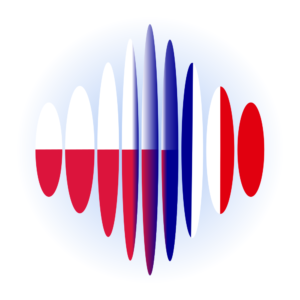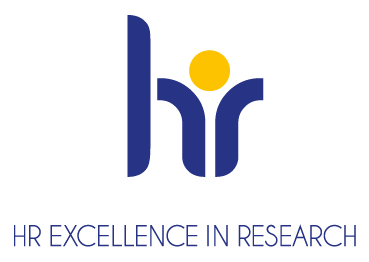
Obróć ekran, aby
przeglądać stronę

About us
Structure
Science
Education
For employees


Polish-French Symposium III: Developments in the physics of ultracold matter
Paris, 11.06.2025-13.06.2025

Venue: Scientific Center in Paris, Polish Academy of Sciences 74, rue Lauriston - 75116 Paris - 74, Rue Lauriston, Chaillot, 16th Arrondissement, Paris, Metropolitan France
75116, France
Website: http://theory.ifpan.edu.pl/events/pl-fr-symposium-2025/
The event 'Polish-French Symposium II: Advances in Ultracold Matter Physics' was held from June 11 to June 13, 2025 at the Scientific Station of Polish Academy of Sciences (PAS) in Paris.
This is the third edition of the symposium organized at the Scientific Station PAS in Paris, by the Center for Theoretical Physics and the Institute of Physics PAS, and the Kastler Brossel Laboratory. The symposium explored the physics of ultracold atomic gases, covering both fundamental aspects and applications in emerging quantum technologies. It equally addressed experimental and theoretical perspectives, focusing on nonlinear phenomena, many-body effects, and entanglement in ultracold bosonic and fermionic atoms, as well as their statistical properties.
Invited Speakers
Jérôme Beugnon, Bloch oscillations of a soliton in a 1D BEC without a lattice
LKB-CDF, Collège de France
Isabelle Bouchoule, Proving the local rapidity distribution of a one-dimensional Bose gas
LCF, Université Paris-Saclay
Yvan Castin, Phonon damping in a 2D superfluid: insufficiency of Fermi’s golden rule at low temperature
LKB-ENS, Ecole Normale Supérieure
Nicolas Cherroret, Coarsening of binary Bose superfluids: an effective theory
LKB-SU, Université Sorbonne
Roman Ciuryło, Hg clock transition affected by collisions with cold atoms
Nicolaus Copernicus University in Toruń
Piotr Deuar, Self organisation and metastability of cavity bosons beyond the adiabatic elimination approximation
Institute of Physics Polish Academy of Sciences
Mariusz Gajda, Simple Model for Monitoring the Motion of a Quantum Particle
Institute of Physics Polish Academy of Sciences
Krzysztof Jachymski, The role of exchange interactions in superradiant phenomena
University of Warsaw
Michał Karpiński, Phase-only spectral-temporal shaping of single-photon pulses
University of Warsaw
Jan Kołodyński, Bayesian inference tools for atomic experiments with continuous light detection
Institute of Physics Polish Academy of Sciences
Bruno Laburthe-Tolra, Generalized Ramsey interferometry with large spin atoms
LPL, Université Sorbonne Paris-Nord
Anna Minguzzi, Symmetry oscillations in strongly interacting one-dimensional mixtures
LPMMC, Université Grenoble-Alpes
Sylvain Nascimbene, Exploring quantum Hall physics with ultracold dysprosium atoms
LKB-CDF, Collège de France
Michał Parniak, Quantum sensing with cold interacting Rydberg atoms
University of Warsaw
Hélène Perrin, Microwave spectroscopy of ultracold sodium least-bound molecular states
LPL, Université Sorbonne Paris-Nord
Dmitry Petrov, Townes soliton beyond mean field
LPTMS, Université Paris-Saclay
Ludovic Pricoupenko, Universality in isolated few-body resonances
LPTMC, Université Sorbonne
Jakob Reichel, Entangling atoms in cavities: From quantum Zeno dynamics to metrology
LKB-ENS, Ecole Normale Supérieure
Tommaso Roscilde, Scaling multipartite entanglement in atomic systems: presto vs. adagio
ENS-LYON, Ecole Normale Supérieure de Lyon
Kazimierz Rzążewski, The Hybrid Sampling Method for the Statistics of a Bose Gas
Center for Theoretical Physics Polish Academy of Sciences
Krzysztof Sacha, Time-tronics: from temporal printed circuit board to quantum computer
Jagiellonian University
Félix Werner, Three-body contact for fermions: Further developments
LKB-ENS, Ecole Normale Supérieure
Tarik Yefsah, Quantum Gas Microscopy of Fermions in the Continuum
LKB-ENS, Ecole Normale Supérieure
Jakub Zakrzewski, Nonergodic dynamics in interacting many-body systems
Jagiellonian University
Organizers:
| Main organizer: |
Center for Theoretical Physics of the Polish Academy of Sciences | |
Institute of Physics of the Polish Academy of Sciences
| |
|


Strona korzysta z plików cookies w celu realizacji usług zgodnie z Polityką prywatności. Możesz określić warunki przechowywania lub dostępu do cookies w Twojej przeglądarce, lub konfiguracji usługi. Administratorem Twoich danych jest Centrum Fizyki Teoretycznej PAN z siedzibą w Warszawie, Al. Lotników 32/46. W sprawach związanych z Pani/a danymi należy kontaktować się bezpośrednio z Inspektorem Ochrony Danych, e-mail: iod(a)cft.edu.pl